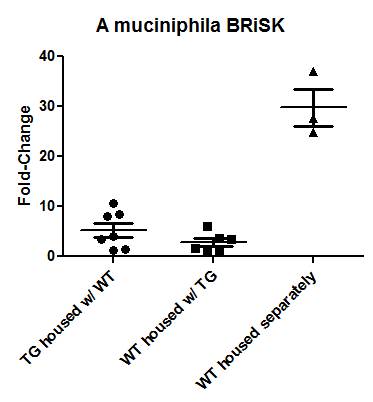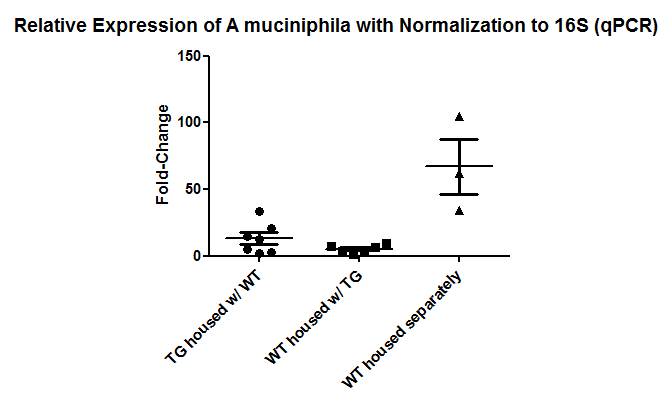Session Information
Session Type: Abstract Submissions (ACR)
Background/Purpose: The association of spondyloarthropathies (SpA) with HLA-B27 was first described in 1973. However, the mechanism remains unknown. The HLA-B27-human beta2 microglobulin (B27/hβ2m) transgenic (TG) rat model has been used to study SpAs. It is known that the gut microbiome affects the immune response. Previous studies characterized the gut microbiome of TG and wild type (WT) animals using standard culture media or limited 16S rRNA sequencing from denaturing gradient electrophoresis gels. In this study we tested the hypothesis that B27 shapes the cecal microbiome by utilizing a deep DNA sequencing technique called biome representational in silico karyotyping (BRiSK). This technique has the potential for more complete microbiome analysis.
Methods: We studied (21-3×283-2)F1 B27/hβ2m TG rats on the LEW background, which develop arthritis but not colitis (A&R 54:1317, 2006), and WT LEW controls. Sixteen rat cecum and content samples (7 TG co-housed with WT, 6 WT co-housed with TG, 3 WT housed separately) underwent DNA digestion and were subjected to BRiSK for high throughput DNA sequencing. Quantitative PCR (qPCR) normalized to 16S was used to confirm the BRiSK results. Statistical analysis was done with Graphpad Prism.
Results: Over 900 bacterial and bacteriophage species were identified using BRiSK. Heat map analysis indicated quantitative differences of 4 bacteria between separately housed WT and TG rats. Two differences were identified by BRiSK and confirmed independently by qPCR (p<0.05 for comparison of non-cohoused wild type to other groups) for the microorganisms Akkermansia muciniphila and Bacteroides vulgatus. Consistent with other recent reports, co-housing tended to obscure differences in microbiota.
Conclusion: B27/hβ2m TG rats showed altered abundance of certain bacteria in the cecum, compared with WT rats housed apart. Differences were also seen in WT rats housed with the TG rats. B. vulgatus has been implicated in the pathogenesis of colitis (J Clin Invest 1996;98:945),and A. muciniphila is reduced in inflammatory bowel disease (Am J Gastroenterol 2010;105:2420). This study suggests that the increase in B. vulgatus and reduction of A. muciniphila in the TG rats are effects of B27 that may be related to the pathogenesis of SpA.
Disclosure:
M. H. Bach,
None;
R. N. Van Gelder,
Novartis Institute for Biomedical Research and Alcon Research Laboratories,
2;
J. D. Taurog,
None;
J. T. Rosenbaum,
None.
« Back to 2012 ACR/ARHP Annual Meeting
ACR Meeting Abstracts - https://acrabstracts.org/abstract/the-presence-of-hla-b27-shapes-gut-microbiome-composition-in-rats/



